On October 31, 2024, at 3:00 PM, the Symposium on "Punishment and Prevention of Cybercrime" was grandly held in Lecture Hall R104 at Macau University of Science and Technology (MUST). The event was co-organized by the MUST Faculty of Law and the School of Criminal Justice of China University of Political Science and Law (CUPL), with support from the MUST Foundation.
The symposium aimed to address theoretical, practical, and cutting-edge challenges in combating and preventing cybercrime, focusing on legal frameworks, governance strategies, and emerging threats. Distinguished speakers included Professor Liu Yanhong, Vice President of CUPL and Qian Duansheng Distinguished Professor; Professor Guo Zhiyuan, Vice Dean of CUPL School of Criminal Justice; Associate Professor Li Huaisheng, Director of the Institute of Cyber Law, CUPL School of Criminal Justice; Associate Professor Shi Fang, Deputy Director of the Institute of Criminal Law, CUPL School of Criminal Justice; Panelists included Associate Professor Li Zhe from the University of Macau Faculty of Law, and MUST Faculty of Law Assistant Professor Dai Mengliang, Assistant Professor Xue Wenchao, and Assistant Professor Chen Qin.
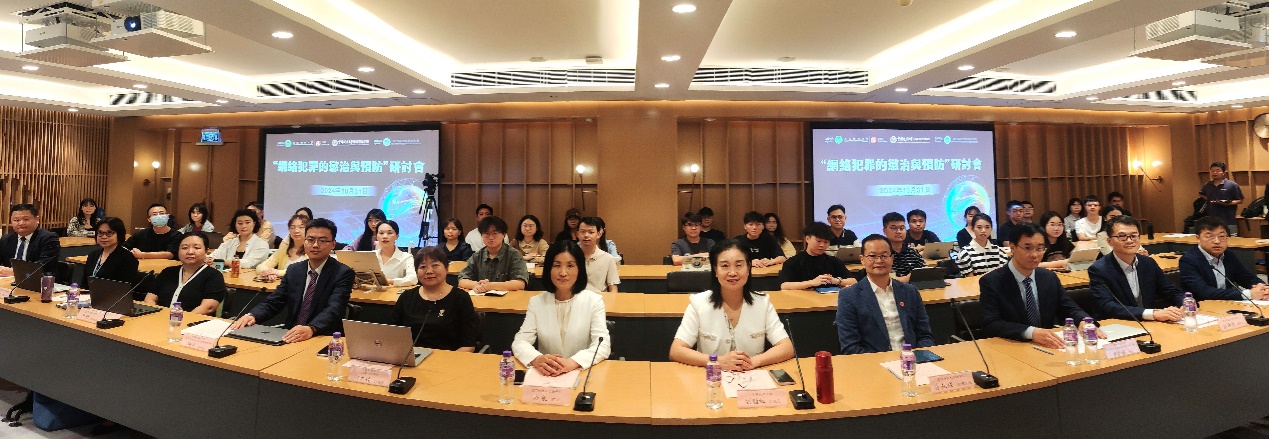
Group Photo of Participants
Dean Fang Quan of the MUST Faculty of Law delivered welcoming remarks, emphasizing CUPL’s pivotal role as a leading institution in Chinese legal education and research. She highlighted the symposium’s goal to foster academic dialogue on cybercrime, providing theoretical insights for legislators and judicial practitioners. Dean Fang expressed hopes for strengthened collaboration between MUST and CUPL in advancing legal scholarship.
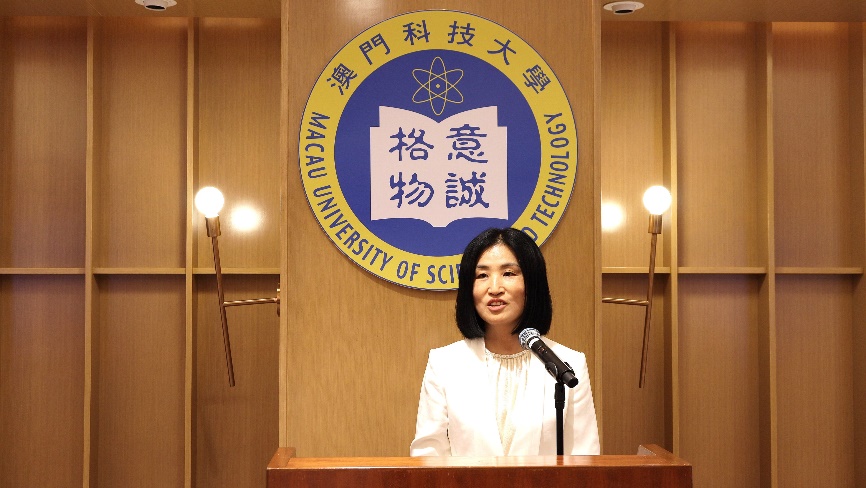
Dean Fang Quan Delivering Opening Remarks
In the keynote presentations, Professor Liu Yanhong delivered "The Iterative Evolution of Cybercrime and Criminal Law Responses". Professor Liu analyzed the development trends of cybercrime across Web 1.0 to Web 3.0 eras, underscoring challenges such as anonymity, cross-border complexities, and technological sophistication. She advocated for proactive criminal law strategies to address governance gaps in the digital age.
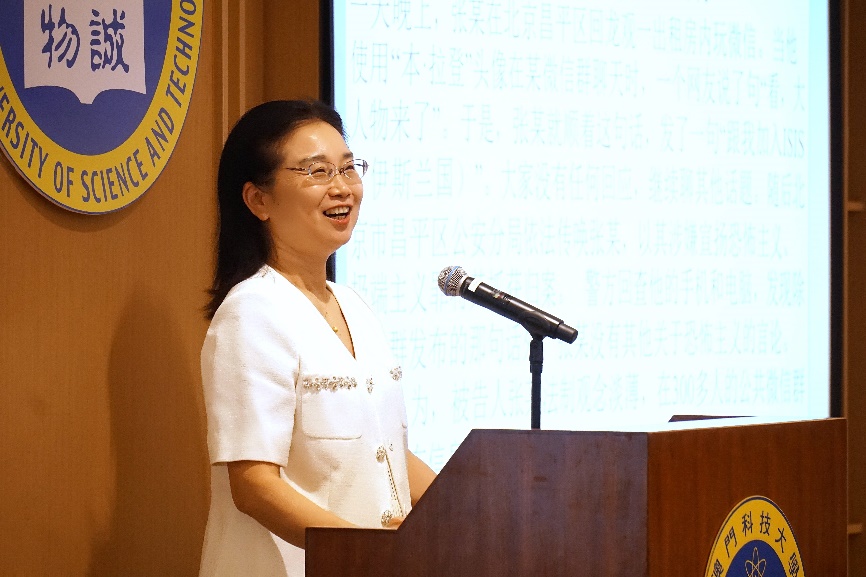
Professor Liu Yanhong
Professor Guo Zhiyuan delivered "Jurisdiction, Evidence Collection, and Review in Chinese Cybercrime Cases". Professor Guo discussed legal and practical obstacles in prosecuting cybercrime, focusing on jurisdictional conflicts, digital evidence admissibility, and judicial review processes under China’s evolving legislative framework.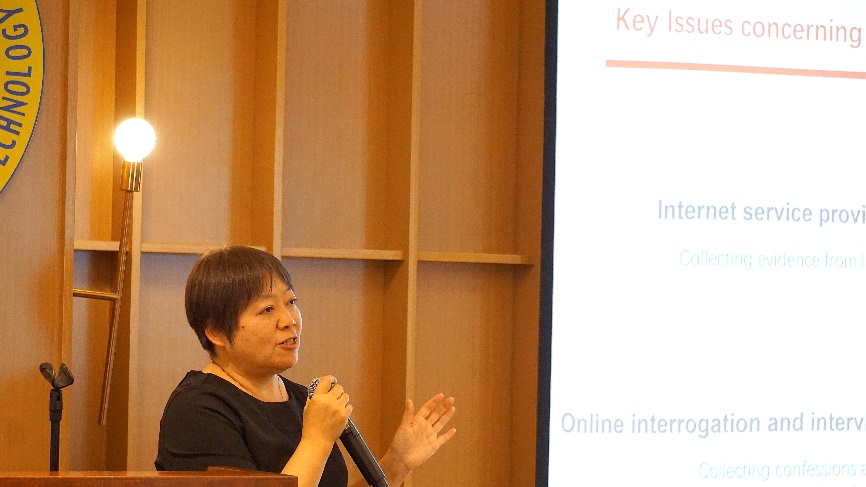
Professor Guo Zhiyuan
Associate Professor Li Huaisheng delivered "Criminal Law Approaches to Data Crime". Associate Professor Li proposed redefining data crime governance through a dual-track system balancing static security (data integrity) and dynamic security (data flow regulation), advocating for an independent legal framework distinct from traditional computer or information crimes.
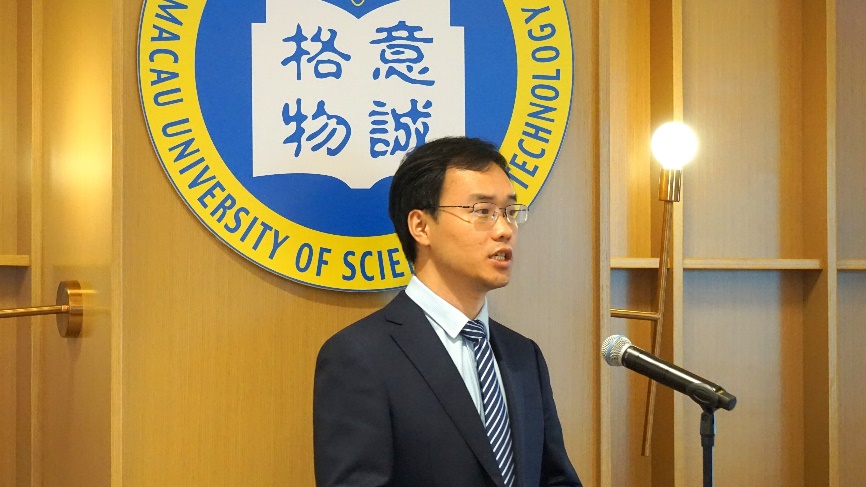
Associate Professor Li Huaisheng
Associate Professor Shi Fang delivered "Addressing Cross-Border Cyber Money Laundering". Associate Professor Shi outlined mechanisms for preventing and punishing cross-border cyber money laundering, emphasizing international cooperation and adaptive criminal justice measures.
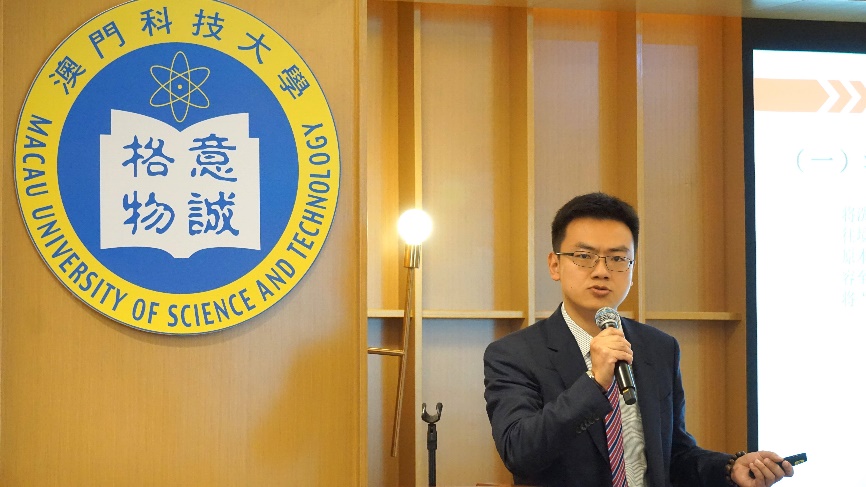
Associate Professor Shi Fang
Panelists explored critical issues in cybercrime governance, including: sentencing disparities in cybercrime cases, scientific validity of digital evidence sampling, Macau’s legal framework under the Computer Crime Prevention Law and Cybersecurity Law, balancing legislative expansion with adherence to the principle of legality ("legitimate conviction, reasonable exoneration").

Panelists (Left to Right: Associate Professor Li Zhe, Assistant Professor Dai Mengliang, Assistant Professor Xue Wenchao, Assistant Professor Chen Qin)
Students actively engaged with speakers, raising questions on topics ranging from jurisdictional conflicts to ethical implications of AI-driven cybercrimes. The symposium concluded with a consensus on the urgency of interdisciplinary collaboration and legal innovation to combat evolving cyber threats.Students actively engaged with speakers, raising questions on topics ranging from jurisdictional conflicts to ethical implications of AI-driven cybercrimes. The symposium concluded with a consensus on the urgency of interdisciplinary collaboration and legal innovation to combat evolving cyber threats.



